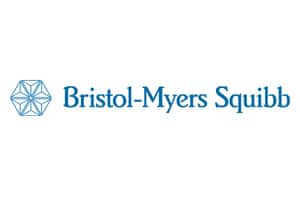
Bristol-Myers Squibb’s fourth-quarter results showed a healthy sales increase for immuno-oncology blockbuster Opdivo, but there are signs that anxiety is creeping in about the drug’s future growth prospects.
PD-1 inhibitor Opdivo (nivolumab) brought in $1.8bn in the last three months of 2018, a rise of 33% which was well ahead of the level expected by a Reuters analyst poll – but largely flat compared to the $1.79bn recorded in the third quarter.
The slowdown comes after rival checkpoint inhibitor Keytruda (pembrolizumab) from Merck & Co/MSD overtook Opdivo in sales terms for the first time last year, a result mainly of Keytruda’s increasing dominance in the large and lucrative lung cancer market.
On that topic there was more bad news for BMS’ ambitions in lung cancer when the company confirmed it had withdrawn a marketing application in the US for Opdivo plus Yervoy (ipilimumab) as a first-line treatment for non-small cell lung cancer patients with high tumour mutational burden (TMB) – an experimental biomarker that hasn’t yet been validated in a regulatory approval.
CEO Giovanni Caforio insisted more than once on BMS fourth-quarter conference call that lung cancer is part of a “much broader set of opportunities” for Opdivo, and the company is still anticipating solid growth for the drug “in the US and internationally” in 2019 thanks to new indications such as adjuvant melanoma and first-line kidney cancer.
He added however that in 2020 “the growth outlook will depend on the data we see this year in lung and in other tumours.”
BMS’ first attempt at breaking into the NSCLC market with Opdivo was a massive miss, with the drug performing worse than chemotherapy regardless in the CheckMate-026 trial, which recruited a broad spectrum of patients with varying levels of PD-L1 expression.
Merck took a narrower approach with Keytruda, hitting the mark in a trial in patents with high PD-L1 expression which got its toe into the first-line market, and then following that with other trials that extended and consolidated its label.
BMS’ response was to focus on the combination of Opdivo and CTLA4 inhibitor Yervoy, but the decision to withdraw the marketing application in the US introduces months of delay to that programme as the PD-1/PD-L1 inhibitor market gets ever more competitive with six drugs now launched and jostling for market share.

BMS’ Giovanni Carforio
The decision to pull the application was taken after discussions with the FDA revealed a need to “characterise the interaction between the two biomarkers of TMB and PD-L1 in these patients in order to understand their relevance to overall survival in this setting,” said Caforio on the call.
To do this, the company needs to wait for new data from the revamped CheckMate-227 trial “that will not be available during the review period for this application,” he added.
There is concern among investors that the FDA may be uncertain about the data from the study which seems to suggest that survival rates for high- and low-TMB patients are similar, potentially undermining the validity of TMB as a predictive biomarker.
The difficulties facing Opdivo help make the case for BMS’ decision to spend $74bn on a merger with Celgene – boosting its cancer and immunology portfolios – and the company spent a lot of time on the call reiterating the rationale for that deal.
Celgene’s late-stage pipeline means the combined company is looking at six new drugs that could launch in the next couple of years, although there is a question mark hanging over Celgene’s top-seller Revlimid (lenalidomide), which accounts for almost two-thirds of its sales but is facing the threat of generic competition in the coming years.




